Let's LAUNCH Let’s Solve It! Step-by-Step Social Problem Solving with Kids!
Free Webinars Taught by Social Thinking Experts
Our free webinars are taught by Social Thinking experts, covering core concepts in social, emotional, and academic learning (SEAL). Each dynamic webinar explores practical ideas, strategies & tools for supporting social learners across a variety of SEAL topics, including stress management, social anxiety, executive functioning, social observation, self-regulation, and more.
Webinar instructors include Social Thinking® founder, Michelle Garcia Winner, MA, CCC-SLP, and other members of the Social Thinking Training & Speakers’ Collaborative. Dr. Pamela Crooke, PhD, CCC-SLP, and co-developer of the Social Thinking® Methodology, moderates the informative Q&A sessions following each presentation. In addition to participating in powerful free learning, webinar attendees earn a Certificate of Completion. (Free webinars are not eligible for CE credit or CEUs. However, some webinars may count towards your total professional development hours, depending on your organization or profession.)
Watch Anytime: Free Learning That Fits Your Schedule!
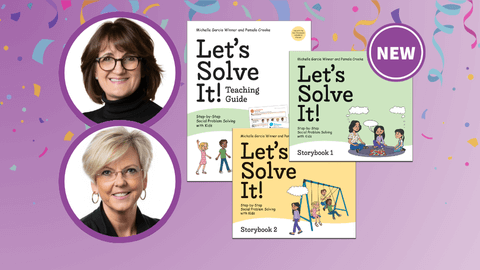
Let's LAUNCH Let’s Solve It! Step-by-Step Social Problem Solving with Kids!
Join Michelle and Pam as they celebrate the release of this new 3-book teaching set for 7-9 year olds!
It will be 30 minutes jam packed with a sneak peek and a surprise freebie for you! We’ll show parts of the 3-book set, share insights into how to use, and explore how the 20 story pairs (Let’s Solve It!/We Solved It!) and teaching templates support kids in figuring out: What’s the problem? Whose problem is it? How does it affect the characters? What to do to solve it? The storybooks feature your favorite We Thinkers characters experiencing everyday problems and solving them too.
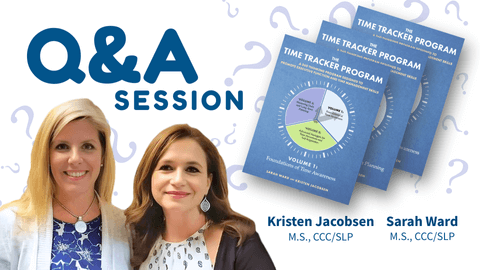
Free Recorded Q&A with Sarah Ward and Kristen Jacobsen
We ran out of time for Q&A during the livestream, so we’re bringing the conversation back! Join us for a FREE RECORDED Q&A webinar with Sarah Ward and Kristen Jacobsen. This dedicated Q&A session is your chance to learn more about their new Time Tracker Program and the on-demand course Back-to-School Strategies for Executive Function Success.
Whether you watched the course or not, everyone is welcome to join and benefit from this FREE engaging discussion. Want to watch the course before attending the recorded Q&A? Here is the link to the course.
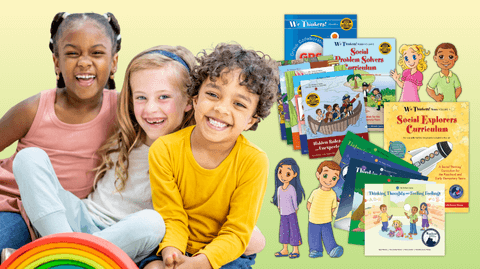
Elevating Play Through Social Thinking
Working with little ones? Register for this free 60-minute webinar as we explore a new set of extension activities for 4-7 year olds based on the We Thinkers! Curriculum.

Embedding Social Thinking TPT and other Free Lessons into your Teaching
Let's explore the Social Thinking Teachers Pay Teachers storefront and the free online tools on our website! Discover a treasure trove of thinksheets, designed to spark meaningful conversations and deep thinking about the social world. These aren’t your average worksheets! Thinksheets are interactive tools that encourage students to share, connect, and engage in rich discussion. Join us as we explore how these unique resources can be used with individuals and groups, plus expert tips for effective teaching.
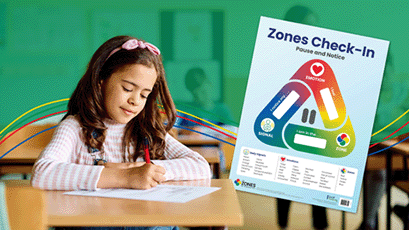
Let’s Check In with The Zones
Turn behavior reminders into positive moments for building self-awareness with a Zones Check-In! Join Leah Kuypers, founder and creator of The Zones of Regulation®, along with Zones expert and trainer, Elizabeth Sautter, for an engaging 60-minute session exploring the evolution of The Zones Check-In and overall framework—from inception to today’s Digital Curriculum and supporting companion tools.
By registering for this recorded webinar, you agree to share your contact information with both Social Thinking and The Zones of Regulation teams. This allows us to follow up with relevant resources, updates, and exclusive content related to the webinar topic.
Replay access expires June 30, 2026
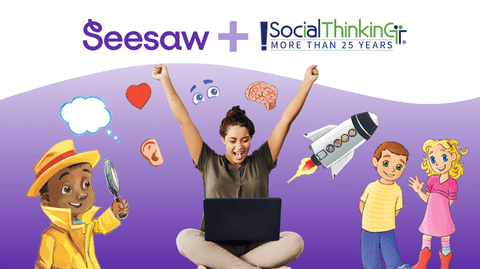
Social Thinking Meets Seesaw
This joint webinar features three free lessons from the Social Thinking Methodology hosted on the Seesaw interactive learning platform. The 60-min webinar provides an overview of foundational lessons found in two Social Thinking curriculum series, You Are a Social Detective and the We Thinkers! Curriculum. Author Pamela Crooke and Social Thinking Founder Michelle Garcia Winner introduce attendees to the concepts and teaching in each lesson and Larissa Hsia-Wong, Lead Curriculum Developer for Seesaw, provides a demo of how the lessons come to life on their interactive platform. What better way to blend theory and teaching, and it’s free.
Explore 3 free lessons from the Social Thinking Methodology hosted on the Seesaw interactive learning platform.
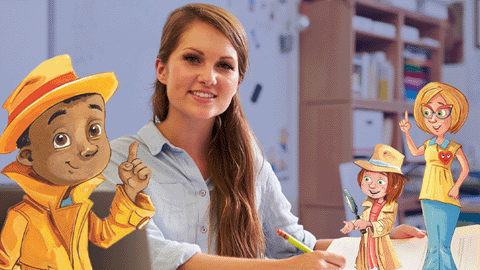
Social Detective - Thinking to Start the School Year
Explore the world of social observation and learn how it lays the foundation for better interpersonal relationships and academic learning. Understanding what it means to be a Social Detective (social observer), especially during the start of a new school year, is crucial to navigating change, academic learning, making friends & more. In this free webinar, we’ll explore the highly accessible and easy-to-embed You Are a Social Detective! Curriculum & Teaching Guide. You’ll watch a curriculum lesson taught by a mainstream third-grade teacher, peruse curriculum-generated student work, and discover innovative ways to adapt these social learning concepts for the secondary grades.
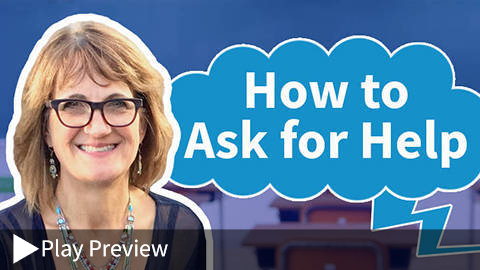
How to Ask for Help
It’s human nature to want to help others, but it’s often difficult for people to ask for help, especially those with social, emotional, and academic learning differences. In this webinar, we’ll discuss why children, students, and adults may resist help or refuse to ask for it and we’ll deconstruct the multi-step process through which we ask for help. We’ll also explore the social emotional benefits for all participating in this unique and rewarding relationship.
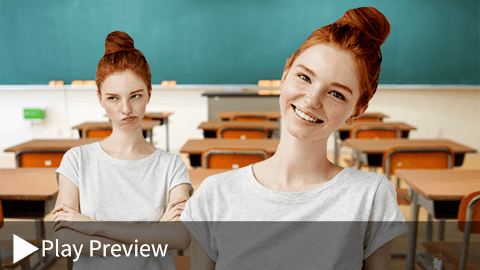
Perspective Taking in the Classroom
Perspective taking can happen anytime at school—during academic learning time, in the hallways, playground, or lunchroom. In this free webinar you will learn about perspective taking in the classroom—supporting students to attend to and interpret their own and others’ thoughts and feelings, whether simply sharing space, interacting, or deciding if and how to participate.
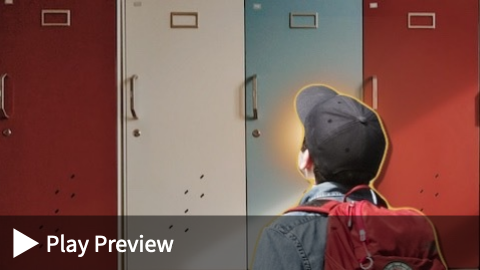
Exploring Our Children’s Stress
Chronic stress and anxiety can impact children’s ability to focus and learn, whether it’s in the classroom or through an online education portal. Helping children metacognitively explore their stress is the first step toward their self-regulation, and this metacognitive understanding also helps educators, therapists, and caregivers learn how to avoid creating even more stressors for children. In this webinar, Michelle Garcia Winner guides parents and professionals in creating structured empathetic discussions with their children and/or students using visual supports and tips.
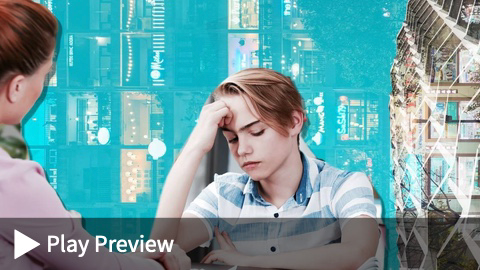
Demystifying Executive Functions
Many students who are academically strong struggle with executive functioning, which can deeply impact their well-being in the social, academic, and job worlds. Join our founder, Michelle Garcia Winner, for this free webinar to break down executive functions and learn how to teach them.
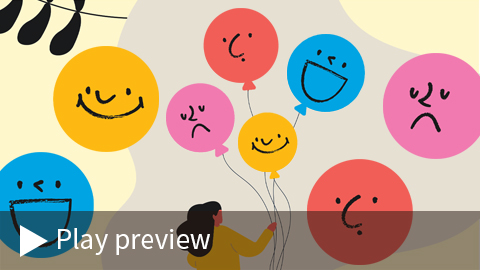
Understanding Self-Regulation
There is a big difference between using reward systems to encourage students to behave and teaching students how to self-regulate. Join Michelle Garcia Winner, the founder of the Social Thinking Methodology, to explore the many moving parts of self-regulation and which of our strategies, frameworks, and teaching materials help students develop these competencies across age groups.
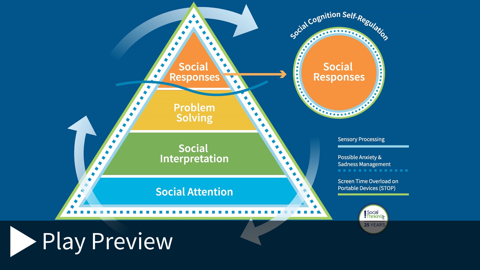
The Social Thinking - Social Competency Model
In this webinar, Michelle Garcia Winner, the founder of Social Thinking, discusses an evidence-informed Social Thinking - Social Competency Model. This model is a way to think about a four-step developmental process to help educators and therapists better support their students and clients.